A Polish film “Ida” directed by Paweł Pawlikowski and written by Pawlikowski and Rebecca Lenkiewicz wins Oscar Award for Best Foreign Language Film.
The drama tells a story of a young novitiate nun Anna in 1960s Poland, who is on the verge of taking her vows when she discovers a dark family secret dating back to the years of the Nazi occupation. Read more on the plot, cast & production.
———————————————————————————————————————————–
To celebrate Berghahn Books is proud to present a selection of titles on Polish Cinema:
 POLISH FILM AND THE HOLOCAUST
POLISH FILM AND THE HOLOCAUST
Politics and Memory
Marek Haltof
During World War II Poland lost more than six million people, including about three million Polish Jews who perished in the ghettos and extermination camps built by Nazi Germany in occupied Polish territories. This book is the first to address the representation of the Holocaust in Polish film and does so through a detailed treatment of several films, which the author frames in relation to the political, ideological, and cultural contexts of the times in which they were created. Following the chronological development of Polish Holocaust films, the book begins with two early classics: Wanda Jakubowska’s The Last Stage (1948) and Aleksander Ford’s Border Street (1949), and next explores the Polish School period, represented by Andrzej Wajda’s A Generation (1955) and Andrzej Munk’s The Passenger (1963). Between 1965 and 1980 there was an “organized silence” regarding sensitive Polish-Jewish relations resulting in only a few relevant films until the return of democracy in 1989 when an increasing number were made, among them Krzysztof Kieślowski’s Decalogue 8 (1988), Andrzej Wajda’s Korczak (1990), Jan Jakub Kolski’s Keep Away from the Window (2000), and Roman Polański’s The Pianist (2002). An important contribution to film studies, this book has wider relevance in addressing the issue of Poland’s national memory.
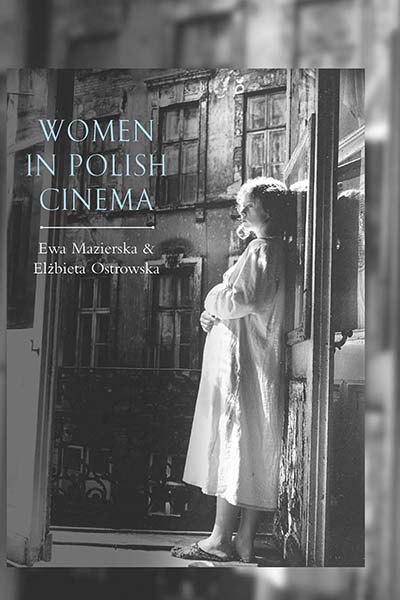 WOMEN IN POLISH CINEMA
WOMEN IN POLISH CINEMA
Ewa Mazierska and Elzbieta Ostrowska
Polish film has long enjoyed an outstanding reputation but its best known protagonists tend to be male. This book points to the important role of women as key characters in Polish films, such as the enduring female figure in Polish culture, the “Polish Mother,” female characters in socialist realistic cinema, women depicted in the films of the Polish School, Solidarity heroines, and women in the films from the postcommunist period. Not less important for the success of Polish cinema are Polish women filmmakers, four of whom are presented in this volume: Wanda Jakubowska, Agnieszka Holland, Barbara Sass and Dorota Kędzierzawska, whose work is examined.
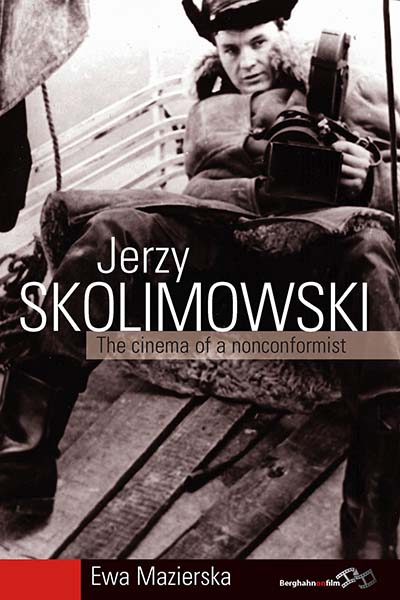 JERZY SKOLIMOWSKI
JERZY SKOLIMOWSKI
The Cinema of a Nonconformist
Ewa Mazierska
Jerzy Skolimowski is one of the most original Polish directors and one of only a handful who has gained genuine recognition abroad. This is the first monograph, written in English, to be devoted to his cinema. It covers Skolimowski’s career from his early successes in Poland, such as Identification Marks: None and Barrier, through his émigré films, Deep End, Moonlighting and The Lightship, to his return to Poland where, in 2008, he made the internationally acclaimed Four Nights with Anna.
Ewa Mazierska addresses the main features of Skolimowski’s films, such as their affinity to autobiographism and surrealism, while discussing their characters, narratives, visual style, soundtracks, and the uses of literature. She draws on a wide range of cinematic and literary texts, situating Skolimowski’s work within the context of Polish and world cinema, and drawing parallels between his work and that of two directors, with whom he tends to be compared, Roman Polański and Jean-Luc Godard.
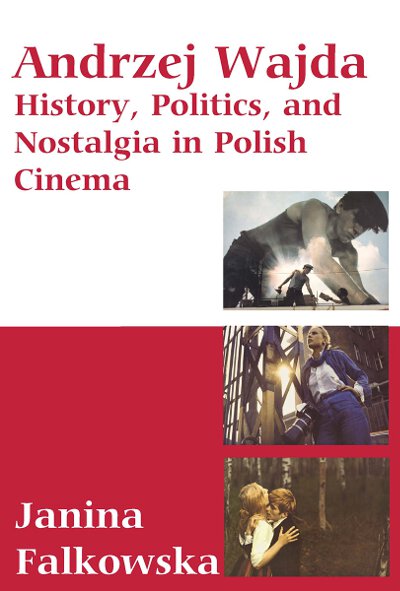 ANDRZEJ WAJDA
ANDRZEJ WAJDA
History, Politics & Nostalgia In Polish Cinema
Janina Falkowska
The work of Andrzej Wajda, one of the world’s most important filmmakers, shows remarkable cohesion in spite of the wide ranging scope of his films, as this study of his complete output of feature films shows. Not only do his films address crucial historical, social and political issues; the complexity of his work is reinforced by the incorporation of the elements of major film and art movements. It is the reworking of these different elements by Wajda, as the author shows, which give his films their unique visual and aural qualities.
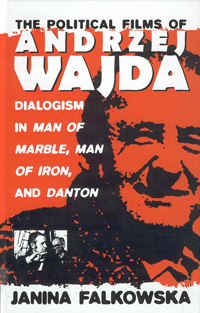 THE POLITICAL FILMS OF ANDRZEJ WAJDA
THE POLITICAL FILMS OF ANDRZEJ WAJDA
Dialogism in Man of Marble, Man of Iron, and Danton
Janina Falkowska
Andrzej Wajda is considered one of Poland’s – many would say the world’s – greatest film directors. During the thirty-five years of his activity in film, theatre or television, his work, whether strong or weak, always arouses strong emotions and provokes intense debates in the media. His films deal with historical and political issues concerning Polish character and the nature of political power. Controversial, painful, stimulating and cinematically beautiful, they never fail to fully engage the spectator. This is particularly true for his major political films, which form the basis of the study. Applying Bakhtin’s concept of dialogism, the author shows how a creative interaction between the image on the screen and the viewer is established through Wajda’s films. At the same time, she offers a detailed analysis of the historical events leading up to the collapse of the Socialist system in Poland.
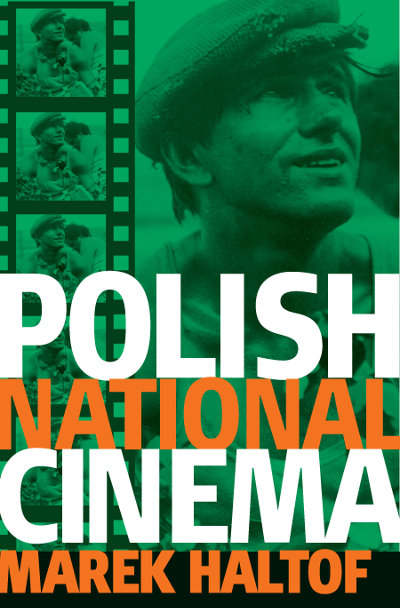 POLISH NATIONAL CINEMA
POLISH NATIONAL CINEMA
Marek Haltof
In the years since World War II, Poland has developed one of Europe’s most distinguished film cultures. However, in spite of the importance of Polish cinema this is a domain in need of systematic study.
This book is the first comprehensive study of Polish cinema from the end of the 19th century to the present. It provides not only an introduction to Polish cinema within a socio-political and economic context, but also to the complexities of East-Central European cinema and politics.
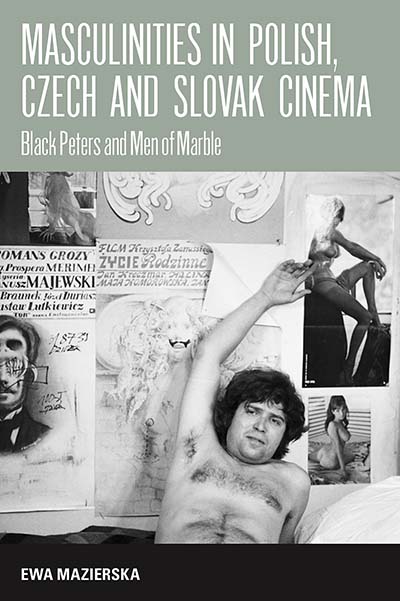 MASCULINITIES IN POLISH, CZECH AND SLOVAK CINEMA
MASCULINITIES IN POLISH, CZECH AND SLOVAK CINEMA
Black Peters and Men of Marble
Ewa Mazierska
Gender, especially masculinity, is a perspective rarely applied in discourses on cinema of Eastern/Central Europe. Masculinities in Polish, Czech and Slovak Cinema exposes an English-speaking audience to a large proportion of this region’s cinema that previously remained unknown, focusing on the relationship between representation of masculinity and nationality in the films of two and later three countries: Poland, Czechoslovakia/the Czech Republic and Slovakia. The objective of the book is to discuss the main types of men populating Polish, Czech and Slovak films: that of soldier, father, heterosexual and homosexual lover, against a rich political, social and cultural background. Czech, Slovak and Polish cinema appear to provide excellent material for comparison as they were produced in neighbouring countries which for over forty years endured a similar political system – state socialism.
Visit Berghahn Film Studies website to few a full selection of Film Studies titles.
—————————————————-
Don’t forget Berghahn Journals:
Coming Soon from Berghahn Journals!
Screen Bodies is a peer-reviewed journal focusing on the intersection of Screen Studies and Body Studies across disciplines, institutions, and media. It is a forum promoting research on various aspects of embodiment on and in front of screens through articles, reviews, and interviews. The journal considers moving and still images, whether from the entertainment industry, information technologies, or news and media outlets, including cinema, television, the internet, and gallery spaces. It investigates the private experiences of portable and personal devices and the institutional ones of medical and surveillance imaging. Screen Bodies addresses the portrayal, function, and reception of bodies on and in front of screens from the perspectives of gender and sexuality, feminism and masculinity, trans* studies, queer theory, critical race theory, cyborg studies, and dis/ability studies.
 Projections
Projections
The Journal for Movies and Mind
WINNER OF THE 2008 AAP/PSP PROSE AWARD FOR BEST NEW JOURNAL IN THE SOCIAL SCIENCES & HUMANITIES!
Projections: The Journal for Movies and Mind is an interdisciplinary, peer-reviewed journal that explores the way in which the mind experiences, understands, and interprets the audio-visual and narrative structures of cinema and other visual media. Recognizing cinema as an art form, the journal aims to integrate established traditions of analyzing media aesthetics with current research into perception, cognition and emotion, according to frameworks supplied by psychology, psychoanalysis, and the cognitive and neurosciences.

